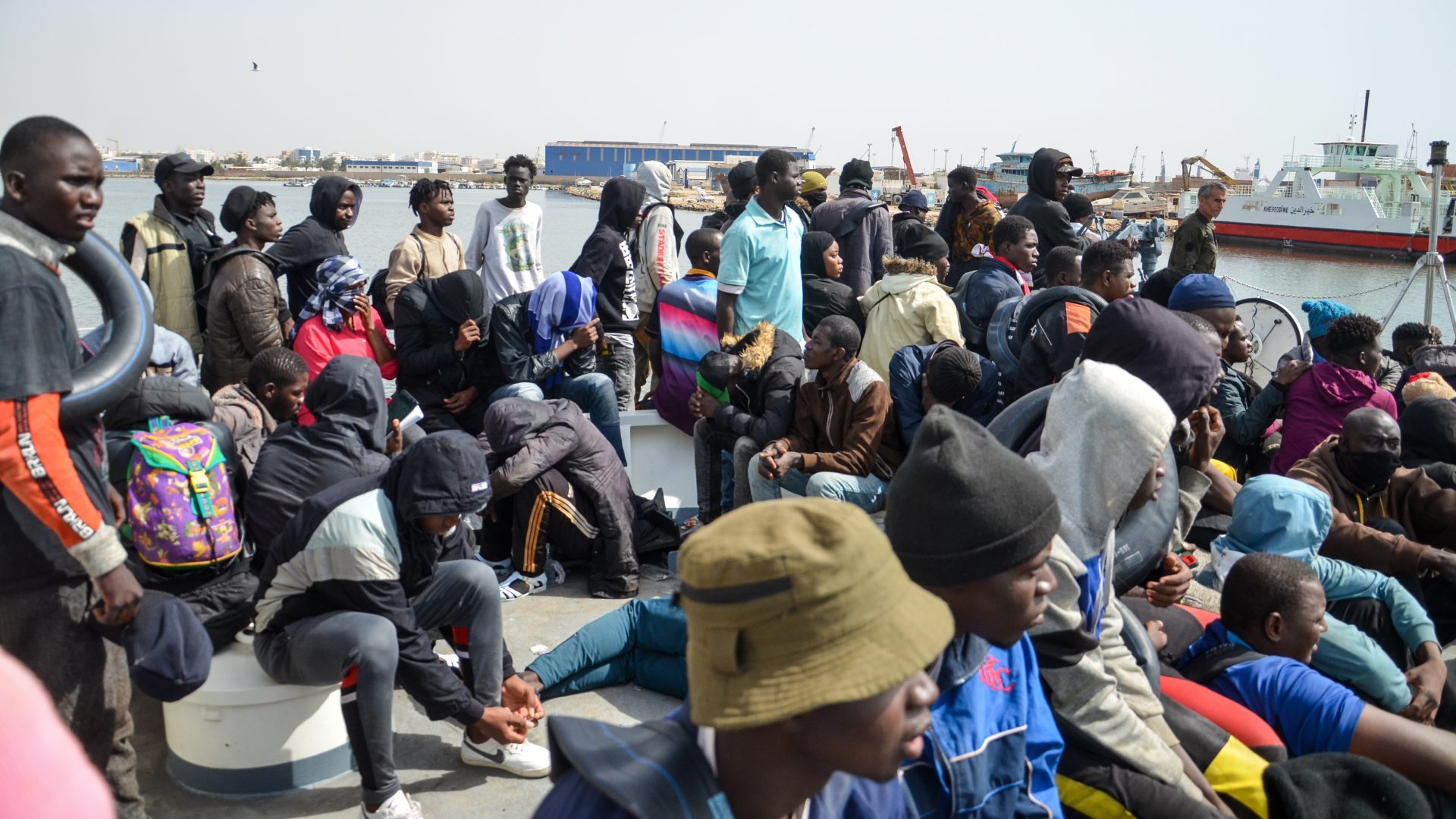Life in Tunisia came to a halt over the weekend. On Saturday, public life was stopped, partly due to the extreme heat, but partly to watch tennis hero Ons Jabeur, who has been nicknamed the country’s minister of happiness, sadly defeated in the Wimbledon women’s final.
Then on Sunday, normal political life took a hiatus as the president of the European Commission Ursula Von Der Leyen, Italian prime minister Giorgia Meloni and the outgoing Dutch leader Mark Rutte came to the country to reward president Kais Saied with the equivalent of £215 million in aid for promising to help block the boats that have been carrying a growing number of migrants to Europe. Human rights groups have already criticised the move.
Around 3,500 Tunisians have crossed the Mediterranean this year, the bulk making their way to France – in particular, Paris – to find work “sans papiers” in the pizzerias and building sites of the former colonial ruler. They are joined by those who have made their way from across Africa to attempt the same journey, as often as not in ill-equipped flat-bottomed boats, welded together in a matter of hours, before taking their human cargo on the perilous crossing. A total of 1,767 have died so far.
Irregular Tunisian migration to Europe is growing and, at present, showing no signs of slowing. That is what Saied is being paid to fix, but how he does this remains in question.
There are reports of Tunisian coast guards intercepting and beating migrants; in early July hundreds were sent to a no-man’s land area between the Mediterranean Sea and the Tunisian-Libyan land border near Ben Guerdane. These acts of brutality may ultimately do little to stem the flow, but at least they are cheaper than attempting to rebuild Tunisia’s tattered economy.
To pitch it at its most lyrical, the country that gave hope to the region in 2011 during the African Spring now has none of its own.
In the supermarkets, yawning gaps on the shelves offer public acknowledgement of the government’s inability to subsidise traditional staple foods. The prices of what goods remain are, as often as not, beyond the reach of most family budgets. Water is on ration and, all the while, the sun burns down
All the while, from across Africa, boosted in no small part by the carnage in Sudan, new arrivals come, finding their way to the small and overlooked communities in Tunisia, where they must compete with locals for the meagre resources on offer. This hasn’t caused tension. It’s led to widespread violence.
The waves of pôgroms and mob brutality that began with the president’s speech in February, in which he accused the sub-Saharan migrants of bringing “violence, crime, and unacceptable practices” to Tunisia, as part of a plot to “change the demographic make-up,” kickstarted a wave of savagery that engulfed many of country’s main urban areas, and that continues, to this day in the second city of Sfax, where many African migrants have been forced from their homes to the street.
Even now, as I write in the 42-degree heat, hundreds of sub-Saharan migrants, some wounded, sleep in the parks and sidewalks of Sfax. Reports of attacks with machetes are commonplace, accounts of rape and sexual violence equally so.
Then, earlier this month, many were rounded up and forcibly expelled to the country’s borders with Algeria and Libya, a clear breach of international law, according to Avocats Sans Frontières.
“We are at the Tunisia-Libya border, at the seaside,” one Ivorian asylum seeker told Human Rights Watch on July 4. “We were beaten [by Tunisian security forces]… We have many injured people here. We have children who haven’t eaten for days… forced to drink sea water. We have a [Guinean] pregnant woman who went into labour… she died this morning. The baby died too.”
However, the acute focus of the European Commission on migration above rights has met resistance. Last week in Strasbourg, EU parliamentarians from across the political spectrum went public over their opposition to the partnership between the Commission and Tunisia’s increasingly authoritarian president. Pointing to the internal campaign that Saied has waged against his own political opponents and critics, the group pledged their kinship with both the Tunisian people, but also the country’s migrants.
“Just in the last weeks, as the Commission and Kaïs Saïed were negotiating the (Memorandum of Understanding) of this deal, the Tunisian authorities sent hundreds of migrants to the Libyan border, with neither water nor food, women and children included,” one of those MEP’s, France’s Mounir Satouri told The New European. “Not only is externalising migration management to such governments illegal, and contrary to migrants’ rights, it is giving them incredible leverage over the EU. We have already seen this playing out with Recep Tayip Erdogan and the EU-Turkey migration deal. This deal with Kaïs Saïed is struck against human rights, European values and real EU interests,” he said.
After her Wimbledon disappointment, Tunisia’s minister of happiness next competes in the Canadian Open. If she looks homewards, Ons Jabeur will doubtless conclude that she has a lot of work to do.









